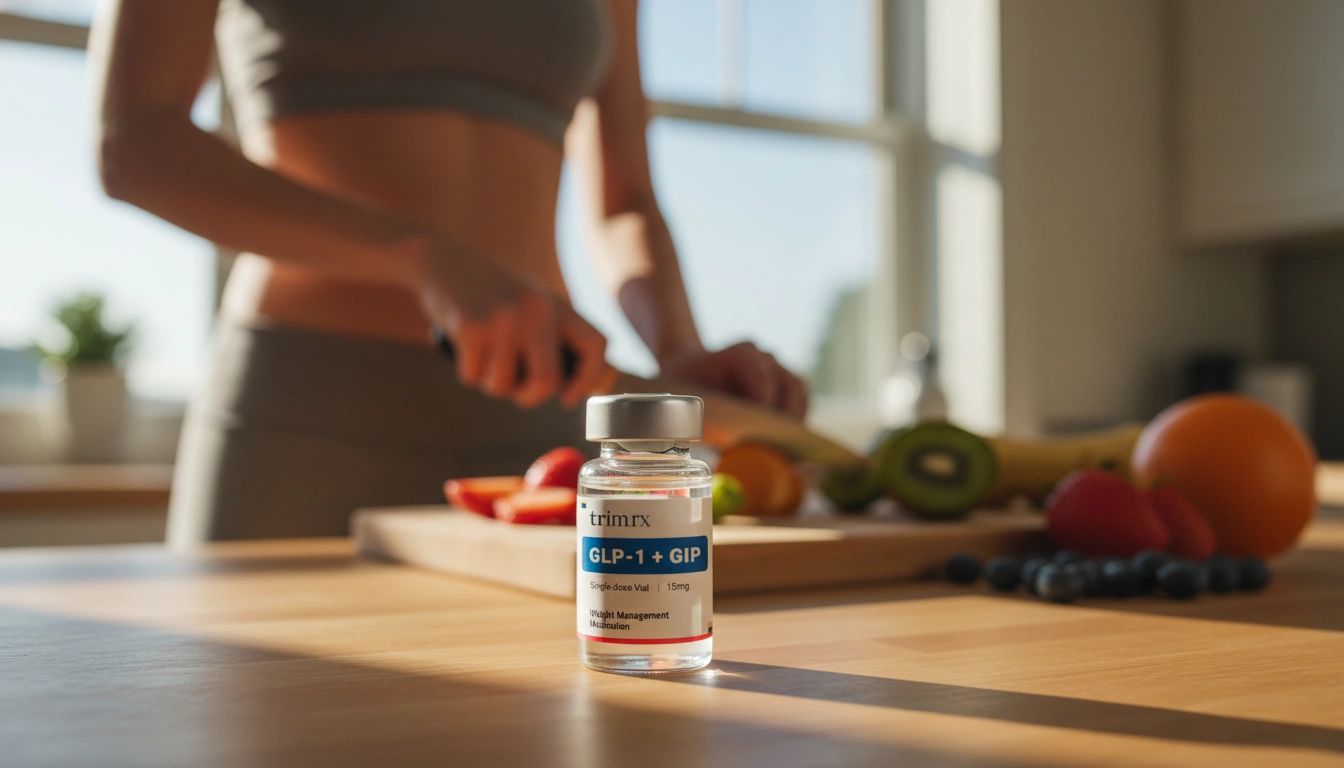Are There Generic GLP-1 Drugs? Understanding the Current Landscape

Introduction
In the realm of weight management and diabetes treatment, the emergence of GLP-1 receptor agonists has transformed the landscape. These medications, known for their effectiveness in managing blood sugar levels and facilitating weight loss, have gained immense popularity. A recent development has sparked curiosity and hope among patients and healthcare providers alike: the approval of a generic version of liraglutide, commonly known by its brand name, Victoza. This advancement raises a pressing question: Are there generic GLP-1 drugs available?
As we explore this topic, we’ll uncover the current state of generic GLP-1 medications, their implications for patients, and how they compare to their branded counterparts. Our goal is to provide a comprehensive understanding of the generics available, the differences between generics and compounded medications, and what the future holds for these important drugs. By the end of this post, we aim to equip you with the knowledge to navigate the evolving landscape of GLP-1 medications effectively.
Together, we’ll delve into the various aspects of GLP-1 drugs, including their classifications, the significance of the recent FDA approvals, and the potential benefits they offer. We’ll also highlight the difference between generics and compounded versions, and what this means for individuals seeking personalized weight management solutions. So, whether you’re exploring options for diabetes management, weight loss, or simply curious about the developments in this category of medications, you’re in the right place.
The Emergence of GLP-1 Drugs
Glucagon-like peptide-1 (GLP-1) drugs are a class of medications that mimic the action of the GLP-1 hormone, which plays a crucial role in regulating blood sugar levels and appetite. These drugs have been particularly effective for individuals with type 2 diabetes and obesity. They work by stimulating insulin secretion, reducing glucagon secretion, and increasing satiety, which ultimately aids in weight loss.
The first GLP-1 medication, exenatide, was approved in 2005 under the brand name Byetta. Since then, several others have followed, including liraglutide (Victoza), semaglutide (Ozempic, Wegovy), and tirzepatide (Mounjaro, Zepbound). These drugs have proven highly effective, with patients often experiencing significant weight loss and improved metabolic health.
However, the high cost of these medications has been a barrier for many. This is where the introduction of generic options becomes significant. The recent approval of generic liraglutide not only offers a more affordable alternative but also promotes competition that can lead to lower prices across the board.
Current Landscape of Generic GLP-1 Drugs
The Approval of Generic Liraglutide
In 2024, the U.S. Food and Drug Administration (FDA) approved the first generic version of liraglutide. This landmark decision by the FDA represents a crucial step in improving patient access to essential medications. The generic version is manufactured by Hikma Pharmaceuticals and is expected to be available nationwide, offering a more affordable option for those relying on this medication for diabetes management.
Availability of Other Generic GLP-1 Drugs
While liraglutide is now available in a generic form, it’s important to note that not all GLP-1 medications have generics on the market. Currently, the only other GLP-1 drug with a generic version is exenatide, which is marketed under the brand name Byetta. This means that as of now, drugs like semaglutide (Ozempic, Wegovy) and tirzepatide (Mounjaro, Zepbound) do not have FDA-approved generics.
This limited availability of generics may pose challenges for patients who are looking for cost-effective treatments. The pricing dynamics in the pharmaceutical market suggest that more generics entering the market could lead to price reductions over time, making these medications more accessible.
Compounded GLP-1 Drugs
As we discuss generics, it’s equally important to highlight compounded GLP-1 drugs. Compounded medications are personalized formulations created by pharmacies to meet specific patient needs, particularly when standard medications are in short supply. However, these compounded versions do not undergo the same rigorous FDA approval process as generics and branded medications, leading to concerns about safety and efficacy.
While compounded GLP-1 medications have filled gaps during supply shortages, they should be approached with caution. The FDA has emphasized that compounded drugs may carry risks, including variability in potency and purity. This difference is significant for patients who require consistent and reliable treatment.
The Impact of Generic GLP-1 Drugs on Patients
Cost-Effectiveness
The introduction of generic liraglutide is poised to provide significant cost savings for patients. Generic drugs typically cost less than their branded counterparts, making them an attractive option for those facing financial constraints. While the exact pricing structure has yet to be disclosed by manufacturers, the expectation is that the generic will be priced lower than branded Victoza, thereby improving access for many individuals.
Increased Accessibility
The availability of generic GLP-1 drugs is particularly important in addressing the growing demand for effective diabetes and weight management solutions. Many individuals who might have previously been unable to afford branded medications may now have the opportunity to receive treatment through these generics. This could lead to improved health outcomes for a broader population, ultimately contributing to better management of diabetes and obesity-related complications.
Clinical Efficacy
While generics must demonstrate bioequivalence to their branded counterparts, it’s essential to acknowledge that they may not always deliver the same clinical benefits. In the case of liraglutide, studies have shown that it is effective in managing blood sugar and promoting weight loss. However, newer GLP-1 medications, such as semaglutide and tirzepatide, have demonstrated superior efficacy in clinical trials. For instance, semaglutide has been shown to facilitate greater weight loss compared to liraglutide, making it a preferable option for some patients.
Therefore, while generics provide a valuable alternative, patients should consult with healthcare professionals to determine the most suitable treatment based on their individual health needs and goals.
The Future of GLP-1 Generics
Anticipating More Generic Approvals
As the landscape of GLP-1 medications continues to evolve, there is hope that additional generics will emerge in the coming years. The FDA is committed to facilitating the entry of generic drugs into the market, particularly for medications that are in high demand or have been subject to shortages. This could mean that we may see generics for popular drugs like semaglutide and tirzepatide in the future, further expanding treatment options for patients.
The Role of Patients and Providers
As we move forward, it’s crucial for both patients and providers to stay informed about the availability of generics and the potential impact on treatment plans. Patients should actively engage in discussions with their healthcare providers regarding medication options, considering both generics and branded drugs based on their individual circumstances.
Additionally, advocacy for affordable healthcare solutions can help drive systemic changes that improve access to essential medications. By raising awareness of the importance of generics in the pharmaceutical landscape, we can contribute to a future where effective treatments are accessible to all.
Conclusion
The approval of generic liraglutide marks a significant milestone in the landscape of GLP-1 medications, providing hope for many individuals seeking effective diabetes management and weight loss solutions. While generics offer a more affordable alternative, it’s important to consider the variations in clinical efficacy among different GLP-1 drugs.
As we continue to navigate this evolving landscape, we encourage readers to engage with their healthcare providers to explore their options fully. Together, we can work towards achieving better health outcomes for all individuals affected by diabetes and obesity.
FAQ
What are GLP-1 drugs?
GLP-1 drugs are a class of medications that mimic the action of the GLP-1 hormone, helping to regulate blood sugar levels and reduce appetite.
Are there currently any generic GLP-1 drugs available?
Yes, the FDA has approved generic versions of liraglutide (Victoza) and exenatide (Byetta). However, other GLP-1 drugs such as semaglutide and tirzepatide do not yet have generics.
What is the difference between generic and compounded GLP-1 drugs?
Generic drugs are FDA-approved copies of branded medications, while compounded drugs are personalized formulations made by pharmacies and may not undergo the same level of regulatory oversight.
How can I find out if I qualify for a GLP-1 medication?
We encourage you to take our free assessment quiz to determine your eligibility for personalized weight loss medications. Take the quiz here.
Are there any quick-access supplements available to support my weight loss journey?
Yes, we offer GLP-1 Daily Support and Weight Loss Boost supplements that can be purchased without requiring a quiz. Explore GLP-1 Daily Support here. and check out Weight Loss Boost here.

Transforming Lives, One Step at a Time
Keep reading
China’s Supreme Court Upholds Semaglutide Patent for Novo Nordisk
China’s Supreme People’s Court upholds Novo Nordisk’s semaglutide compound patent, supporting IP protection.
Over 600,000 Californians Risk Losing Access to GLP-1 Weight-Loss Drugs
California’s Medi-Cal will stop covering GLP-1 weight-loss drugs for weight-loss-only prescriptions, effective Jan. 1, 2026.
Weight-Loss Pill Approval Likely to Prompt Overhaul of Packaged Food and Fast-Food Products
FDA approval of GLP-1 weight-loss pills may prompt food makers and restaurants to shift to high-protein, smaller-portion products.



